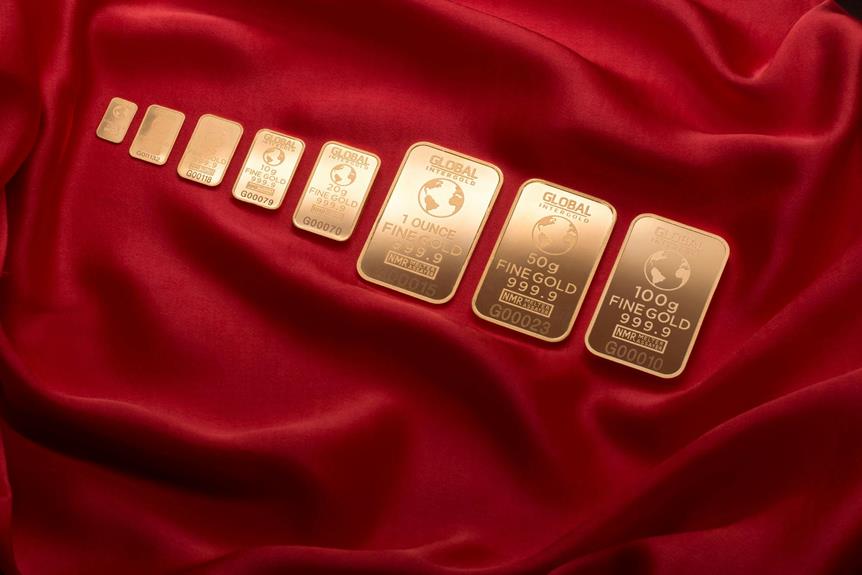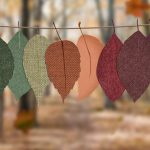When considering hemp fabric, you might notice its price can be higher than that of traditional materials. However, it's essential to weigh this cost against the fabric's durability, eco-friendliness, and long-term savings. Hemp's unique properties, such as resistance to mold and UV light, contribute to its longevity, making it an appealing option for those who prioritize sustainability. But is the initial investment truly justified when you factor in these benefits? Exploring the nuances of hemp fabric could reveal insights you hadn't anticipated.
Table of Contents
Key Takeaways
- Hemp fabric offers long-term durability, reducing the need for frequent replacements and ultimately saving money over time.
- Its eco-friendly attributes, such as water conservation and biodegradability, contribute to a positive environmental impact.
- Although the initial cost is higher, investing in hemp supports sustainable practices and high-quality materials.
- Hemp's hypoallergenic and breathable properties make it a healthier choice for sensitive skin and various climates.
Factors Influencing Hemp Fabric Pricing
Several factors come into play when determining the price of hemp fabric, making it essential to understand what drives these costs.
First, the quality of the hemp itself significantly affects pricing. Higher-quality fibers, sourced from mature plants, yield a more durable and aesthetically pleasing fabric, leading to higher costs.
Next, consider the production process. Hemp requires specific conditions for cultivation, and if the farming practices are sustainable, those costs often reflect on the final price.
Another key factor is the availability of hemp. As demand for eco-friendly materials rises, a limited supply can drive prices up.
Additionally, the manufacturing methods play a role; traditional processes can be more labor-intensive than modern techniques, impacting overall costs.
Transportation and tariffs are also important; if the fabric is imported, these added expenses can influence what you pay.
Comparing Hemp to Traditional Fabrics
When you compare hemp fabric to traditional materials like cotton or polyester, you'll notice distinct differences in sustainability, durability, and overall cost. Hemp stands out as a more eco-friendly option. Unlike cotton, which requires large amounts of water and pesticides, hemp grows quickly and needs minimal resources. This makes it a more sustainable choice for environmentally conscious consumers.
Durability is another area where hemp excels. Hemp fibers are naturally stronger and more resilient than cotton or polyester. This means your hemp fabric items are likely to last longer, providing better value over time. While the initial investment in hemp might be higher, its longevity can save you money in the long run by reducing the need for frequent replacements.
In terms of cost, hemp fabric can be more expensive than conventional materials. However, considering its durability and eco-friendly properties, many people find it worth the investment. You're not just buying fabric; you're supporting sustainable practices and investing in quality.
Environmental Benefits of Hemp
Hemp offers significant environmental benefits, from reducing water consumption to improving soil health, making it a standout choice for eco-conscious consumers. By choosing hemp fabric, you're not just opting for a sustainable material; you're supporting practices that promote a healthier planet.
Here are three key environmental advantages of hemp:
- Low Water Usage: Hemp requires considerably less water than cotton and other traditional crops. This means that by choosing hemp, you're conserving precious water resources, especially in areas prone to drought.
- Soil Health Improvement: Hemp plants enrich the soil by adding nutrients and preventing erosion. Their deep root systems help maintain soil structure, making it more fertile for future crops.
- Carbon Sequestration: Hemp absorbs more carbon dioxide from the atmosphere than it emits during its growth cycle. This property makes it a powerful ally in combating climate change, as it helps reduce greenhouse gases.
Durability and Longevity of Hemp
Known for its impressive strength, hemp fabric boasts remarkable durability that ensures longevity, making it an excellent investment for sustainable fashion. When you choose hemp, you're opting for a material that can withstand wear and tear far better than many conventional fabrics. Hemp fibers are naturally resistant to mold, mildew, and UV light, which means your garments will maintain their quality even after prolonged exposure to the elements.
You'll also find that hemp becomes softer and more comfortable with each wash, without sacrificing its structural integrity. This means fewer replacements in your wardrobe, saving you money over time. Additionally, hemp fibers are less likely to stretch out or pill, so your clothes will retain their shape and appearance longer than those made from synthetic options.
Even in the face of heavy use, hemp fabric remains strong and reliable. If you're someone who values both style and sustainability, investing in hemp garments can pay off in countless ways. With its durability and longevity, hemp fabric isn't just a trend; it's a choice that stands the test of time, making it a smart addition to your wardrobe.
Cost Over Time: A Long-Term View
When you consider the cost of hemp fabric over time, it's essential to factor in its durability and longevity.
You'll notice that investing in hemp not only saves you money on replacements but also helps reduce environmental impact in the long run.
As you weigh these benefits, think about how they add value to your purchase.
Durability and Longevity
Investing in hemp fabric often pays off over time due to its remarkable durability and ability to withstand wear and tear. Unlike conventional fabrics, hemp gets stronger with each wash, making it an ideal choice for long-lasting clothing and home textiles. Over the years, you'll likely find that hemp fabric outperforms many of its counterparts, saving you money on replacements and frequent purchases.
Here are three key points to consider about hemp fabric's durability:
- Resistance to Mildew and Mold: Hemp's natural properties make it resistant to mildew and mold, ensuring your items remain fresh even in humid conditions.
- High Tensile Strength: Hemp fibers are incredibly strong, which means they won't easily fray or tear, even with daily use. This quality makes it perfect for everything from apparel to heavy-duty bags.
- UV Resistance: Hemp fabric provides excellent protection against UV rays, helping to maintain the color and integrity of your items over time.
Environmental Impact Savings
Hemp fabric not only offers durability but also significantly reduces environmental impact over time, making it a smarter choice for eco-conscious consumers. When you choose hemp, you're opting for a product that requires considerably less water and pesticides compared to conventional cotton. This means you're directly contributing to a decrease in harmful runoff and soil degradation.
Additionally, hemp plants grow quickly and can be harvested in just a few months, allowing for more sustainable crop rotations. This rapid growth cycle helps replenish nutrients in the soil, promoting healthier ecosystems. When you invest in hemp fabric, you're not just getting a product that lasts; you're also supporting agricultural practices that work in harmony with nature.
Over time, the environmental savings multiply. Since hemp is biodegradable, it doesn't contribute to landfill waste like synthetic fabrics do. You're reducing your carbon footprint with every wear and wash. While hemp fabric might have a higher initial cost, the long-term environmental benefits and savings make it a strategic investment. By choosing hemp, you're making a conscious decision that benefits both you and the planet.
Consumer Demand and Market Trends
Consumer interest in sustainable materials has driven a notable rise in the demand for hemp fabric, reflecting broader market trends toward eco-friendly products. As more consumers become aware of the environmental impact of their choices, they're actively seeking alternatives that align with their values. This shift is evident in several key areas:
- Fashion Industry Growth: Designers and brands are increasingly incorporating hemp into their collections, recognizing its versatility and sustainability. You're likely to see hemp clothing featured prominently in eco-conscious fashion lines.
- Home Textiles Expansion: Beyond apparel, hemp fabric is making its way into home goods like curtains, bedding, and upholstery. This trend caters to consumers looking to create sustainable living spaces.
- Health and Wellness Focus: More people are drawn to hemp's natural properties, including its hypoallergenic and breathable qualities. This makes it an appealing choice for those prioritizing health in their fabric choices.
As you navigate your options, you'll find that this rising demand not only supports environmental initiatives but also offers you stylish and practical choices in textiles.
Investing in hemp fabric might just align perfectly with your eco-friendly lifestyle.
Frequently Asked Questions
How Does Hemp Fabric Feel Compared to Cotton or Polyester?
Hemp fabric feels different from cotton and polyester. It's earthy and breathable, often softer as it ages. You'll notice it's more durable and has a unique texture that offers a refreshing alternative to conventional fabrics.
Can Hemp Fabric Be Dyed Easily?
Yes, you can dye hemp fabric easily. It absorbs colors well, allowing for vibrant results. Just ensure you're using the right dye and follow the instructions carefully to achieve the best outcome for your projects.
Is Hemp Fabric Suitable for Sensitive Skin?
Yes, hemp fabric's breathable and hypoallergenic properties make it suitable for sensitive skin. Its natural fibers reduce irritation, allowing you to enjoy comfort and style without worrying about allergic reactions or discomfort.
What Are the Common Uses of Hemp Fabric?
Hemp fabric's versatility shines through its common uses. You'll find it in clothing, bags, upholstery, and eco-friendly products. Its durability and breathability make it perfect for those seeking sustainable and stylish options in everyday life.
Where Can I Buy Hemp Fabric Products?
You can buy hemp fabric products at local fabric stores, online marketplaces like Amazon, or specialty shops focused on sustainable materials. Don't forget to check eco-friendly brands that emphasize hemp in their product lines!
- Tetron Fabric for Marine Applications: Durability and Use Cases - June 18, 2025
- Tetron Fabric for Outdoor Furniture: Weather Resistance and Care - June 18, 2025
- Tetron Fabric for Wall Coverings: Style and Application Tips - June 18, 2025



